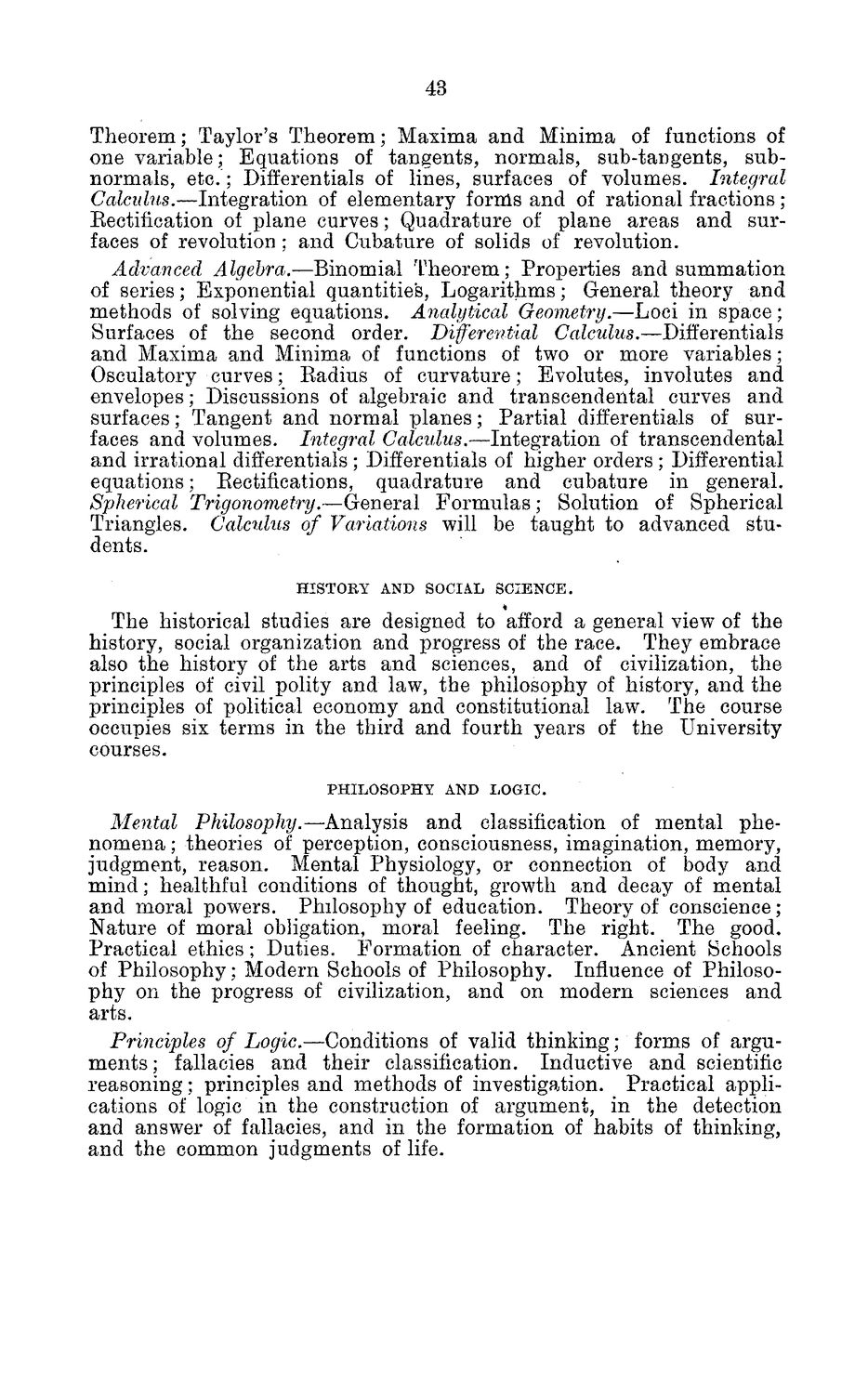| |
| |
Caption: Board of Trustees Minutes - 1884
This is a reduced-resolution page image for fast online browsing.

EXTRACTED TEXT FROM PAGE:
43 Theorem; Taylor's Theorem; Maxima and Minima of functions of one variable; Equations of tangents, normals, sub-tangents, subnormals, etc.; Differentials of lines, surfaces of volumes. Integral Calculus.—Integration of elementary forms and of rational fractions ; Kectification of plane curves; Quadrature of plane areas and surfaces of revolution; and Cubature of solids of revolution. Advanced Algebra.—Binomial Theorem; Properties and summation of series; Exponential quantities, Logarithms; General theory and methods of solving equations. Analytical Geometry.—Loci in space; Surfaces of the second order. Differential Calculus.—Differentials and Maxima and Minima of functions of two or more variables; Osculatory curves; Eadius of curvature; Evolutes, involutes and envelopes; Discussions of algebraic and transcendental curves and surfaces; Tangent and normal planes; Partial differentials of surfaces and volumes. Integral Calculus.—Integration of transcendental and irrational differentials; Differentials of higher orders ; Differential equations; Eectifications, quadrature and cubature in general. Spherical Trigonometry.—General Formulas; Solution of Spherical Triangles. Calculus of Variations will be taught to advanced students. HISTORY AND SOCIAL SCIENCE. The historical studies are designed to afford a general view of the history, social organization and progress of the race. They embrace also the history of the arts and sciences, and of civilization, the principles of civil polity and law, the philosophy of history, and the principles of political economy and constitutional law. The course occupies six terms in the third and fourth years of the University courses. PHILOSOPHY AND LOGIC. Mental Philosophy.—Analysis and classification of mental phenomena ; theories of perception, consciousness, imagination, memory, judgment, reason. Mental Physiology, or connection of body and mind; healthful conditions of thought, growth and decay of mental and moral powers. Philosophy of education. Theory of conscience; Nature of moral obligation, moral feeling. The right. The good. Practical ethics; Duties. Formation of character. Ancient Schools of Philosophy; Modern Schools of Philosophy. Influence of Philosophy on the progress of civilization, and on modern sciences and arts. Principles of Logic.—Conditions of valid thinking; forms of arguments ; fallacies and their classification. Inductive and scientific reasoning; principles and methods of investigation. Practical applications of logic in the construction of argument, in the detection and answer of fallacies, and in the formation of habits of thinking, and the common judgments of life.
| |